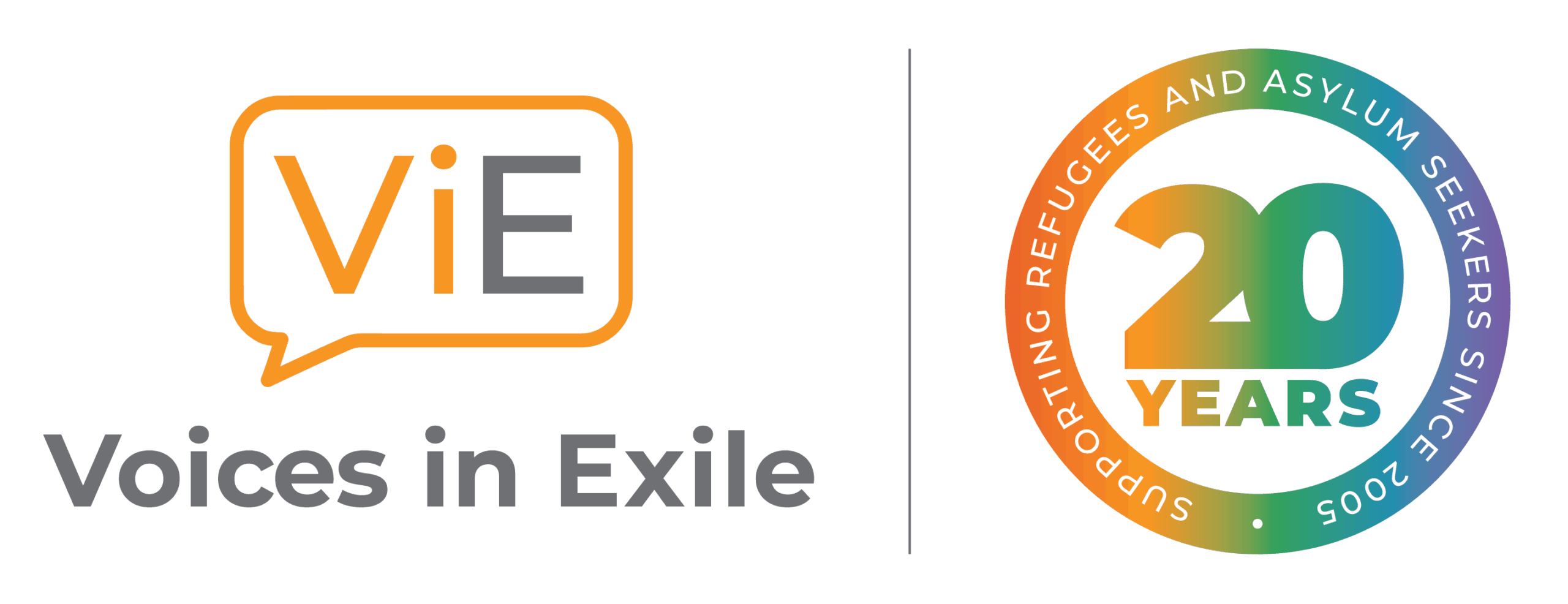In this Q&A, our Director Alison Kelly shares her background, experience and priorities for the future of Voices in Exile.
Can you tell us a bit about yourself and your background?
Growing up with a regular presence of foster children in the house, and students of my dad’s staying with us when they needed support, there was an assumption that we are not born with equal life chances, and that resources are to be shared according to need.
I’ve always been interested in how society works, in power dynamics and how best to organise to fight inequalities. At university I studied politics and philosophy and stayed to complete a doctorate in politics. I worked for several years as a lecturer in an FE college teaching academic study skills for those going to university; self-advocacy for people with learning disabilities; and teachers’ training. At the same time, I undertook paid research into education policy, and became very involved as a trade union rep and activist, campaigning for better terms and conditions for those on hourly paid and zero-hour contracts. I went on to become a manager of education projects in deprived parts of Brighton, and then managed the Migrant ESOL (English for Speakers of Other Languages) Support Hub before working at Voices in Exile.
What first drew you to work in the migration and refugee support sector?
My politically-informed background provided a context for my awareness of issues facing migrants and refugees in the UK. As a trade union activist, I worked closely with FE lecturers and I first became aware of difficulties faced by migrants trying to access ESOL when automatic fee remission was stopped in 2007/8. The impact on staff and students was enormous and I led a collective grievance that arose from those issues. With learning English being so central to the ability to work, access services and feel part of society, the impact of struggling to access ESOL provision is deeply felt. I became the Chair of the Brighton and Hove ESOL Network in 2017, and continue in that role still, remaining involved in the strategic planning and advocacy for joined-up ESOL provision in the city.
Can you tell us about your previous role at Voices and your journey with the organisation so far?
In 2018, I secured funding from the People’s Health Trust to run a migrant welcome group in Brighton, but the venue for that closed and I was able to switch the funding to Voices in Exile. I co-ordinated the staff running that, as well as co-ordinating casework staff at Voices and TDC working on the Migrant ESOL Support Hub (MESH). I designed and managed projects that supported strengths-based work with language, orientation and employability, and I became Voices’ Projects and Development Manager in 2021, and then the Head of Services, playing a central role in fundraising and strategic development.
What are you most excited about in this new chapter, as you step into the role of Voices in Exile Director?
My approach has always been a strategic and collaborative one. Time and again we see the power of collective action in fighting injustice. Joined up, city-wide and sector-wide thinking about our combined resources and strengths enables us to gain wins in ways that would otherwise fail. Voices has grown and consolidated, becoming the leading organisation for migrants and refugees in the area, but in the worsening political context in which we find ourselves it is essential that we look outwards to join with others in the sector and the city.
What do you see as the biggest priorities for Voices over the next year or two?
As Director, I plan to have more of a focus on campaigning and advocacy, working collaboratively with other organisations in the sector both locally and nationally to improve access to services and push back against anti-migrant narratives. I want to better prioritise the voices of lived experience in our work and direction, both with our campaigning and with our next strategic plan. We also need to increase our capacity for service users who have not arrived in the UK via a Home Office resettlement programme, and who currently make up 83% of our clients but for whom we only receive around 20 – 30% of our funding. Through all of this we will prioritise staff wellbeing and care. This is essential for those working with clientswho are often traumatised, and for our staff and volunteers working in such a charged and demanding political context.
What does community mean to you, and how can we continue building stronger networks of support for our clients?
‘Community’, I think, is often a misused word. People are referred to as being part of a community that they quite often do not identify with. We talk of people being part of the ‘refugee community’ when they might identify themselves as being part of the medical community, the LGBTQ community, or no community at all. If we’re talking about community in the context of our clients and networks of support, then I think there are some amazing networks in Brighton and Hove – brilliant joined-up thinking and collaborations that are tremendously responsive to the needs of our client group.
However, for me, community is also about the institutions and services that support us, and about the need to push for equal access for all to the law, health services, housing, education. ‘Networks of support’ are often having to advocate for our clients to access services that create unnecessary barriers where there should be none, and that is where we must direct our efforts.
What motivates you on the harder days in your role?
The determination and achievements of our clients and the dedication of our staff, volunteers and the sector as a whole are all awe-inspiring. Then there’s the current political climate and the worsening anti-migrant rhetoric – and the utter certainty, without trace of a doubt, that this is worth fighting for.
